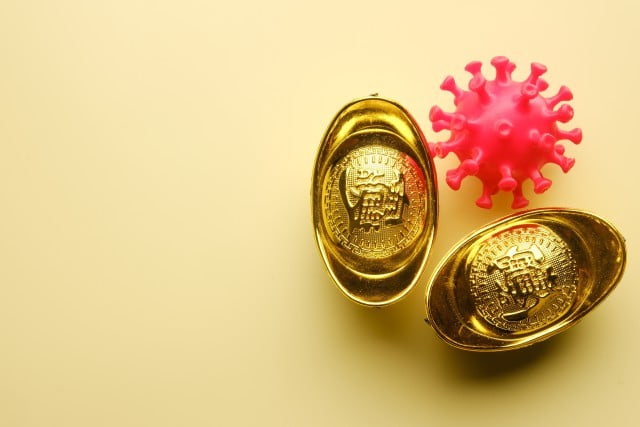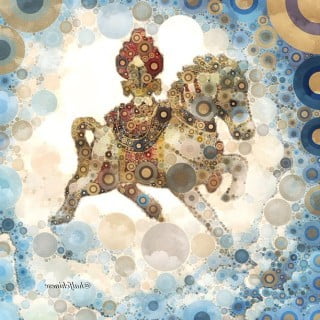Are mirrors in a bedroom Feng Shui? When it comes to creating a harmonious and balanced space, the principles of Feng Shui play a significant role. The ancient Chinese practice emphasizes the importance of energy flow and the arrangement of elements within a space to promote health, happiness, and abundance. In the bedroom, in particular, Feng Shui can have a profound impact on one’s overall well-being.
The use of mirrors is an essential aspect of Feng Shui, as they are believed to reflect and manipulate energy within a space. Understanding the role of mirrors in Feng Shui can provide insight into how they can influence the energy flow in the bedroom and ultimately affect one’s quality of rest and relaxation.
In this article, we will delve into the significance of mirrors in Feng Shui, explore their potential pros and cons in the bedroom, discuss optimal placement according to Feng Shui principles, examine different mirror shapes and their symbolic meanings, as well as provide techniques for promoting positive energy flow with mirrors while avoiding common mistakes. By harnessing the power of mirrors in bedroom Feng Shui, individuals can create a tranquil and rejuvenating sanctuary that supports their overall well-being.
The Role of Mirrors in Feng Shui
Understanding the significance of mirrors in Feng Shui is crucial when it comes to creating a harmonious and balanced space, especially in the bedroom. In Feng Shui philosophy, mirrors are considered powerful tools that can influence the flow of energy, also known as “qi,” in a space. The reflective nature of mirrors is believed to amplify or enhance the energy present in a room, making them an important element to consider when applying Feng Shui principles.
How Mirrors Can Impact the Energy Flow in a Space
Mirrors have the ability to expand and reflect light, which can make a room appear brighter and more spacious. In Feng Shui, this quality is often harnessed to create a sense of openness and abundance.
Additionally, mirrors are thought to double whatever they reflect, so they can also be used strategically to multiply positive energy or desirable elements within a space. However, it’s important to note that mirrors should be used with intention and placed mindfully to avoid any potential negative effects on the energy flow.
Pros and Cons of Having Mirrors in the Bedroom
Having mirrors in the bedroom can have both positive and negative effects from a Feng Shui perspective. On one hand, strategically placed mirrors can help circulate and enhance positive energy throughout the room. They can also create a sense of balance and calmness if positioned thoughtfully.
On the other hand, having too many mirrors or placing them incorrectly can disrupt the natural flow of qi and even create an unsettling atmosphere. It is therefore essential to weigh these potential benefits and drawbacks when incorporating mirrors into bedroom design from a Feng Shui viewpoint.
Pros and Cons of Having Mirrors in the Bedroom
The presence of mirrors in the bedroom can have both positive and negative effects from a Feng Shui perspective. On the one hand, mirrors are believed to amplify energy and reflect light, making the bedroom space feel larger and brighter. This can contribute to a more vibrant and energetic atmosphere in the room. Additionally, strategically placed mirrors can create a sense of balance and harmony by visually expanding the space.
However, there are also potential drawbacks to consider when it comes to having mirrors in the bedroom according to Feng Shui principles. One concern is that mirrors can bounce energy around the room, potentially disrupting the peaceful and restful quality that is important for a sleep environment. In addition, if not placed thoughtfully, mirrors may create an imbalance in the energy flow or reflect an undesirable view, such as clutter or sharp angles.
It is essential to weigh these pros and cons when deciding whether or not to incorporate mirrors into your bedroom’s Feng Shui design. By carefully considering how mirrors can impact the energy in your bedroom space, you can make informed decisions that support a harmonious and balanced environment conducive to rest and relaxation.
| Pros of Having Mirrors in Bedroom | Cons of Having Mirrors in Bedroom |
|---|---|
| Amplifies energy and reflects light | Potential disruption of peaceful atmosphere |
| Creates a sense of balance | Possible creation of imbalance in energy flow |
| Visually expands space | Mirror reflection of undesirable views or clutter |
Best Placement for Mirrors in the Bedroom
The placement of mirrors in the bedroom is an important aspect of Feng Shui that can greatly influence the energy flow in the space. According to Feng Shui principles, mirrors are believed to have the ability to expand and circulate energy, creating a sense of spaciousness and light. When it comes to the best placement for mirrors in the bedroom, there are guidelines that can help ensure that they enhance positive energy and contribute to a harmonious atmosphere.
One of the key considerations when placing mirrors in the bedroom is to avoid positioning them directly across from the bed. This is because, in Feng Shui, a mirror facing the bed is thought to create restlessness and disrupt the quality of sleep. Instead, it is recommended to place mirrors on the side walls of the bedroom, where they can reflect natural light or visually expand the space without directly impacting the bed.
Another important factor to consider when deciding on mirror placement is what exactly will be reflected in them. Placing a mirror where it reflects clutter or chaos can amplify negative energy, so it’s essential to position mirrors so that they reflect peaceful and soothing elements within the bedroom. Additionally, placing mirrors at angles that allow them to reflect beautiful views from windows or artwork on the walls can enhance positive energy flow within the space.
In summary, following these guidelines for optimal mirror placement in accordance with Feng Shui principles can help create a balanced and harmonious energy in the bedroom. By avoiding direct reflections of the bed and ensuring that mirrors reflect peaceful and aesthetically pleasing elements, their placement can contribute to a serene and nurturing atmosphere for rest and relaxation.
| Best Placement for Mirrors | Feng Shui Guideline |
|---|---|
| Avoid placing mirrors directly across from the bed | This can disrupt sleep and create restlessness |
| Position mirrors on side walls to reflect light or visually expand space | Enhances positive energy without affecting bed directly |
| Ensure that mirrors reflect peaceful elements and avoid clutter | Amplify positive energy flow within space |
Mirror Shapes and Their Feng Shui Meaning
Understanding Symbolic Significance
In Feng Shui, each shape of a mirror holds different symbolic significance and can consequently have various effects on the energy within a space. For example, round mirrors represent unity and harmony, while square or rectangular mirrors symbolize stability and balance.
Additionally, convex mirrors are believed to disperse energy, while concave mirrors are thought to attract and contain vitality. Understanding these symbolic meanings can help individuals choose the appropriate mirror shape for their bedroom to align with their desired energy flow.
Influence on Bedroom Energy
The shape of a mirror can significantly influence the energy within a bedroom according to Feng Shui principles. Round mirrors are often recommended for promoting positive relationships and unity in the space. Additionally, circular or oval-shaped mirrors are believed to create a sense of wholeness and completion in the bedroom.
On the other hand, rectangular or square mirrors can help establish stability and structure within the room’s energy. By carefully selecting the shape of mirrors in the bedroom, individuals can work towards creating an environment that supports their well-being and relationships.
Mirror Placement and Symbolism
When considering Feng Shui principles in relation to mirror placement in the bedroom, it is important to also take into account the symbolism associated with specific shapes. Placing circular mirrors in areas that promote couples’ harmony is commonly practiced, while square or rectangular mirrors placed near workspaces or seating areas could enhance feelings of stability and balance.
It is essential to be mindful not only of where mirrors are placed but also how their shapes coincide with specific areas of significance within this intimate space. By understanding these symbolic meanings, individuals can strategically utilize mirror shapes to enhance the overall energy flow in their bedroom according to Feng Shui guidelines.
Activating Positive Energy With Mirrors in the Bedroom
Mirrors have long been utilized in Feng Shui practices to enhance the flow of positive energy in a space, and the bedroom is no exception. When used strategically, mirrors can help activate and channel beneficial energy throughout the room, creating a more harmonious and balanced environment for rest and rejuvenation.
By understanding the principles of Feng Shui and applying them to the placement and use of mirrors in the bedroom, individuals can effectively harness the power of mirrors to promote a sense of tranquility and well-being.
To activate positive energy with mirrors in the bedroom, consider the following techniques:
1. Reflecting Natural Light: Positioning mirrors to reflect natural light into the room can help amplify its brightness and create a sense of spaciousness. Placing a mirror opposite a window or near sources of natural light can maximize its reflective properties, making the room feel more open and uplifting.
2. Enhancing Positive Elements: In Feng Shui, mirrors are often used to enhance desirable features or elements within a space. By strategically reflecting objects that symbolize positivity, such as artwork depicting serene landscapes or inspirational quotes, mirrors can serve as amplifiers of favorable energy in the bedroom.
3. Creating Balance: When using multiple mirrors in the bedroom, it’s important to create a sense of balance and symmetry to avoid disrupting the flow of energy. Placing pairs of matching mirrors on either side of the bed or in corresponding areas of the room can help maintain equilibrium and promote a tranquil atmosphere.
By implementing these techniques, individuals can capitalize on the potential for mirrors to activate positive energy in their bedrooms while adhering to foundational principles of Feng Shui. With thoughtful positioning and mindful selection of mirror shapes and styles, it is possible to cultivate an environment that facilitates restful sleep and overall well-being within the space.
Common Mistakes to Avoid With Mirrors in the Bedroom
When incorporating mirrors into the bedroom for Feng Shui purposes, it is important to be mindful of potential mistakes that can have a negative impact on the energy flow in the space. Here are some common errors to avoid:
1. Placing a mirror directly facing the bed: One common mistake is positioning a mirror in a way that reflects the bed, as this can create restless energy and disrupt sleep. The reflection of the bed in the mirror is believed to multiply the personal energy of those sleeping in the bed, leading to potential disturbances and restlessness throughout the night.
2. Using broken or damaged mirrors: In Feng Shui, it is essential to maintain a harmonious and positive environment, and using broken or damaged mirrors can introduce negative energy into the bedroom. It is recommended to replace cracked or tarnished mirrors with new ones to ensure that only positive energy is reflected in the space.
3. Placing mirrors on closet doors: While it may seem practical to have mirrors on closet doors for getting ready, this placement can be unfavorable from a Feng Shui perspective. The constant reflection of clothing and belongings within the bedroom can signify scattered or chaotic energy, which may hinder relaxation and peacefulness.
By being aware of these common mistakes and making conscious choices when incorporating mirrors into bedroom decor, individuals can harness their positive energy and contribute to a balanced and harmonious atmosphere conducive to rest and rejuvenation.
Conclusion
In conclusion, mirrors can be powerful tools in bedroom Feng Shui when used mindfully and intentionally. Understanding the role of mirrors in Feng Shui and their significance in energy flow is crucial for creating a harmonious and balanced space. By considering the pros and cons of having mirrors in the bedroom, individuals can make informed decisions about incorporating these reflective surfaces into their living environment.
When it comes to mirror placement, following guidelines based on Feng Shui principles can help optimize the benefits of mirrors in the bedroom. By positioning mirrors strategically, individuals can enhance positive energy flow and promote a sense of tranquility within the space. Additionally, being mindful of mirror shapes and their symbolic significance in Feng Shui can further influence the energy in the bedroom, allowing for a deeper understanding of how mirrors can impact the overall ambiance.
It’s important to acknowledge common mistakes to avoid with mirrors in the bedroom to prevent negative Feng Shui effects. By being aware of potential pitfalls and implementing measures to counteract them, individuals can harness the power of mirrors to create an environment that supports their well-being.
Ultimately, by taking advantage of the positive energy activation techniques and incorporating final tips for achieving optimal Feng Shui with mirrors in the bedroom, individuals can reap the benefits of using mirrors as a tool for promoting balance and positivity within their living space.

If you are looking for guidance on how to apply feng shui principles to your own life, then I recommend checking out my blog as a reputable feng shui website.





